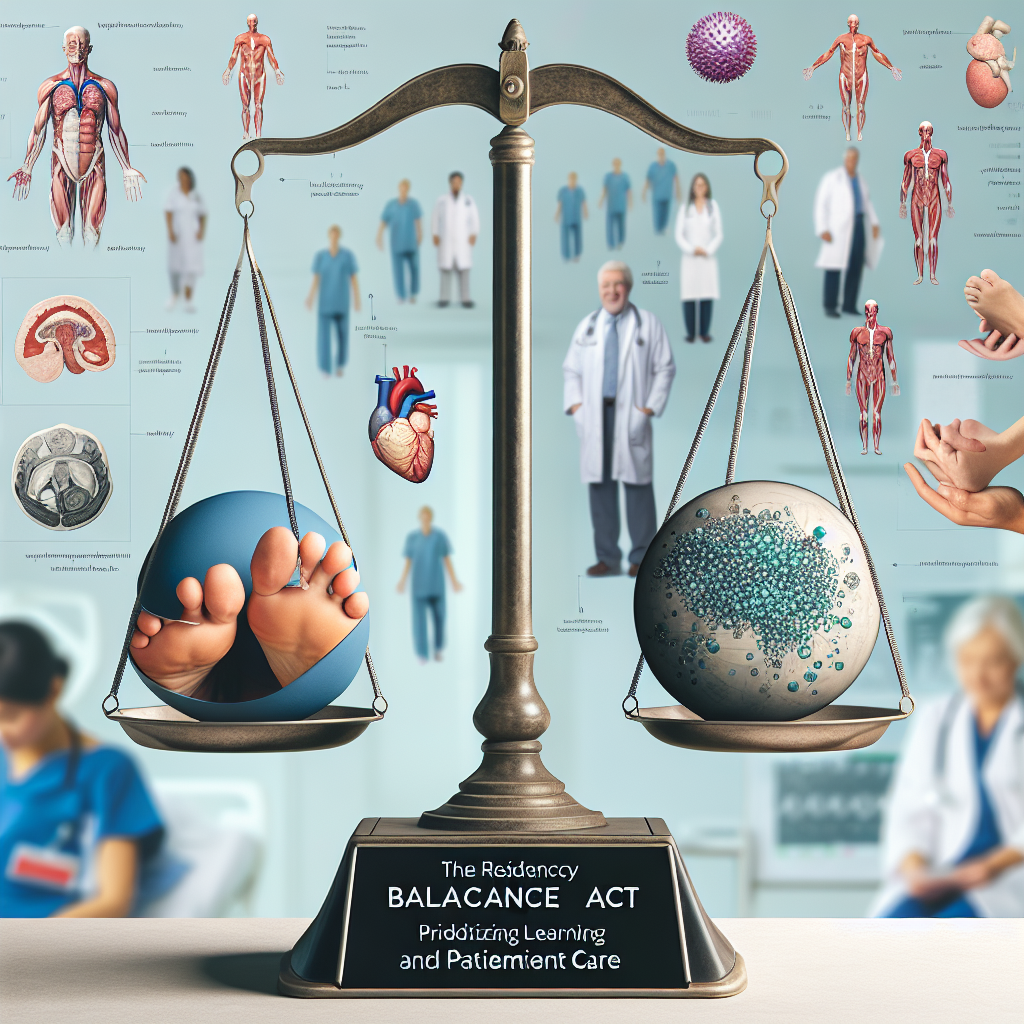The demanding nature of medical residency programs often means that resident physicians find themselves in a constant balancing act between learning and providing quality patient care. Striking the right balance is crucial not only for their professional development but also for ensuring that patients receive the best possible treatment. This article delves into the challenges faced by residents, the importance of prioritizing both learning and patient care, and strategies to successfully navigate this complex landscape.
Understanding the Challenges Faced by Residents
Long Hours and High Expectations
Resident physicians often work grueling hours, sometimes exceeding 80 hours a week. The combination of long shifts, night duties, and weekend responsibilities culminates in a pressure cooker environment that can be exhausting both physically and emotionally. While residents are eager to learn and make an impact, the risk of burnout is ever-present, leading to a decreased ability to provide optimal patient care.
Competing Demands
Medical residents must manage numerous responsibilities, including clinical duties, patient interactions, and academic obligations. This multifaceted role can create conflict between the time spent with patients and the time dedicated to studying, attending lectures, or engaging in research. The need to constantly expand knowledge while being present for patients can be overwhelming and challenge the quality of care given.
The Importance of Prioritizing Learning
Lifelong Learning in Medicine
Medicine is a continually evolving field. New treatments, technologies, and best practices emerge regularly, making it essential for residents to engage in lifelong learning. Staying updated with the latest advancements enables them to provide informed, evidence-based care to their patients.
Building Clinical Skills
Residency is a time for residents to hone their clinical skills. Whether it’s mastering surgical techniques, conducting patient assessments, or learning bedside manner, these experiences are critical to their development as competent physicians. Prioritizing learning not only enhances their confidence but also ensures better outcomes for their patients.
The Importance of Prioritizing Patient Care
The Heart of Medicine
At its core, the essence of medicine is patient care. Residents, despite the pressures of a rigorous training program, must remember that their primary responsibility is to their patients. Building rapport, showing empathy, and providing personalized care can significantly impact a patient’s experience and recovery.
Ensuring Patient Safety
Patient safety is paramount in healthcare. In times of stress and fatigue, it becomes all too easy to overlook critical details. Residents are taught to prioritize patient care above all else, as even small oversights can lead to significant consequences. By finding a balance between learning and patient medication, residents can ensure that they pay full attention to their patients’ needs.
Strategies for Achieving Balance
Time Management and Prioritization
Effective time management is key in residency. Residents should learn to prioritize tasks based on urgency and importance. Utilizing tools such as calendars, digital planners, or even to-do lists can help streamline workflow, allowing for dedicated time for both learning and patient care.
Mindfulness Practices
Incorporating mindfulness into daily routines can help residents manage stress and anxiety. Simple practices such as deep breathing exercises, meditation, or even brief moments of reflection can provide clarity and restore focus, making it easier to transition from the learning environment to patient care seamlessly.
Seeking Support and Mentorship
Building a strong support network is vital. Mentorship from more seasoned physicians can provide guidance on managing stress and cultivating skills necessary for balancing learning with patient care. Residents should not hesitate to seek advice and share their experiences with peers, mentors, and supervisors.
Conclusion: The Balancing Act Continues
The journey through residency is a unique experience, filled with challenges and opportunities for growth. Striking the right balance between learning and patient care isn’t merely a necessity—it’s an integral part of becoming a proficient and compassionate physician. By recognizing the importance of both elements and implementing effective strategies, residents can not only thrive in their professional development but also vastly improve the care they provide to their patients.
As the landscape of healthcare continues to evolve, the commitment to both learning and patient care will define the next generation of physicians. They embody the notion that medicine is not just about fixing ailments but nurturing humanity—one patient interaction at a time.


